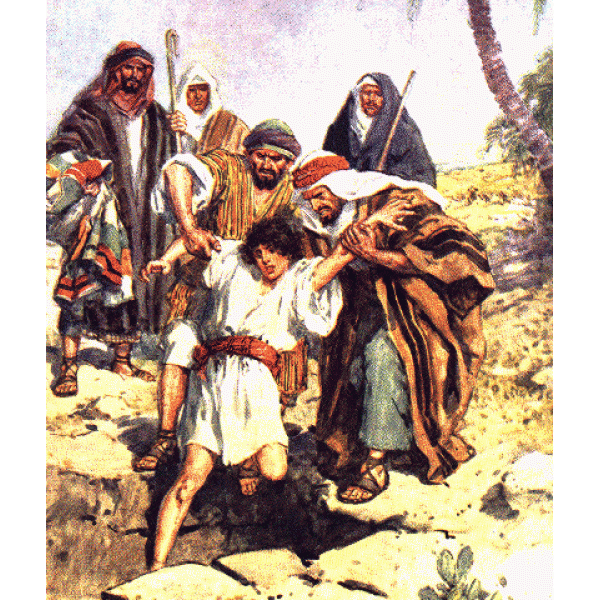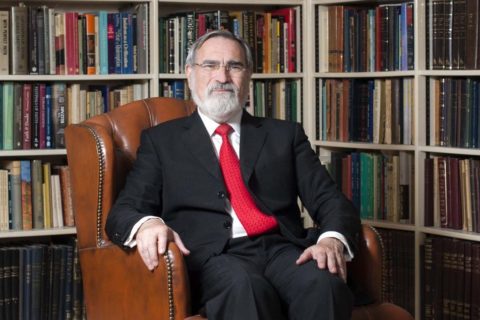Vayeishev: Genesis 37:1 – 40:23 (Dec. 11/12)

As the Torah Turns
Rabbi Lader’s Weekly D’var Torah
Vayeishev: Genesis 37:1 – 40:23 (Dec. 11/12)
Our Torah portion this week is Vayeishev: Genesis 37:1 – 40:23, and begins the story of Joseph and his brothers, which will unfold over four Torah portions, parshiyot, bringing us to the end of the book of Genesis. As we make our way through this narrative, it is important to remember that every detail counts; what might appear as a random encounter can have epic proportions. Joseph is envied by his brothers; there is no peace between them. They cannot even talk to one another without arguing. When the brothers leave home to tend their sheep, Jacob tells Joseph to go and see how they are doing. This will ultimately lead to the dramatic incident where the brothers sell Joseph as a slave, and change everything. But it nearly didn’t happen. Joseph arrived at Shechem where he expected his brothers to be, but they were not there. Rabbi Jonathan Sacks, z”l, wrote: “He might well have wandered around for a while and then, failing to find them, gone home. None of the events that take up the rest of the Torah would have happened: no Joseph the slave, no Joseph the viceroy to Pharaoh, no storage of food during the years of plenty, no descent of Joseph’s family to Egypt, no exile, no slavery, no exodus. The entire story – already revealed to Abraham in a night vision – seemed about to be derailed.” Then we read the following:
“A man found [Joseph] wandering around in the fields and asked him, ‘What are you looking for?’ He replied, ‘I’m looking for my brothers. Can you tell me where they are grazing their flocks?’ ‘They have moved on from here,’ the man answered. ‘I heard them say, “Let’s go to Dothan.”’ So Joseph went after his brothers and found them near Dothan.” (Bereishit 37:15-17)
These three verses are so detailed – and even include dialogue. Joseph is lost, and asks directions from a stranger who finds him wandering in a field. Who was this unnamed man? Our Torah commentators have different answers to that question: Rashi says he was the angel Gabriel. Ibn Ezra says he was a passerby. Ramban (Nachmanides) says that “the Holy One, blessed be He, sent him a guide without his knowledge.” Rabbi Sacks wonders whether Ramban meant without Joseph’s knowledge or without the guide’s knowledge. It could very well be both. “Ramban is teaching that the anonymous man represents an act of Divine guidance to make sure that Joseph went to where he was supposed to be, so that the rest of the drama could unfold. He may not have known he had such a role. Joseph surely did not know. To put it simply: he was an angel who did not know he was an angel. He had a vital role in the story. Without him, it would not have happened. But he had no way of knowing, at the time, the importance of his role.”

I invite you to think about how this relates to experiences you have had. Can you identify a person or people in your life who were there at just the right moment to help guide you on your course, set you on your way, to help things unfold in a certain way? It might be very hard to recognize this at the time, but in hindsight… Sometimes the angel can be another person. And sometimes, we can be the “angel” for another person; yet, we may never know how our acts have impacted the people we meet in our lives.
From Previous Weeks

Toledot – Gen. 25:19-28:9 (Nov. 20/21)
This is a story of parental love… and favorites… and birthrights and blessings.

Chayei Sarah – Genesis 23:1 – 25:18 (Nov. 13/14)
Why is a parsha about death called “life”?

Bereishit – Gen. 1:1-6:8 (Oct. 16/17)
Every soul consists of both a male and female persona…

Sukkot – Lev. 22:26-23:44
The Torah reading for Sukkot is Lev. 22:26-23:44, and includes the “fixed times of the Eternal, which you shall proclaim…
